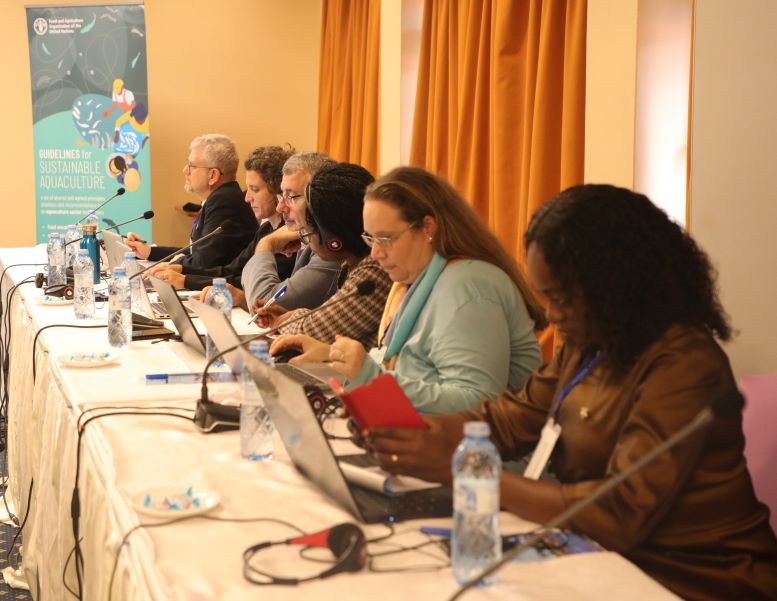ENTEBBE, 12 July 2025 – – Stakeholders from across sub-Saharan Africa recently convened in Entebbe, Wakiso district, for a regional workshop aimed at promoting the Guidelines for Sustainable Aquaculture [GSA]. Led by the Food and Agriculture Organisation [FAO] of the United Nations, the initiative seeks to foster a more responsible, inclusive, and resilient aquaculture sector across the continent.
Developed by the FAO, the GSA provide a practical framework to help countries enhance governance, environmental stewardship, on-farm practices, and value chain development. Key focus areas include transparency, improved market access for small-scale farmers, alignment with national and international regulations, and harmonisation with global standards.
The guidelines also advocate for policies that support traceability, reduce post-harvest losses, and apply circular economy principles, including reuse and recycling. In addition, they call for increased investment in infrastructure, such as transport networks, cold chains, and appropriate technologies, and promote knowledge-sharing through specialised tools and hubs.
The workshop brought together government representatives, development partners, researchers, private sector actors, civil society organisations, and farmers to explore how the GSA can be integrated into national and regional aquaculture strategies. With aquaculture in Africa currently growing at an impressive rate of 11 percent annually, faster than any other region—participants agreed that now is the time to consolidate and scale efforts.
Despite this growth, Africa contributes less than 3 percent to global aquaculture production. Most fish farming on the continent is carried out in freshwater systems and faces a range of challenges, including limited access to quality feed and fingerlings, financing constraints, inadequate infrastructure, and poor market access for small-scale producers. Climate change and declining wild fish stocks in major water bodies such as Lakes Victoria, Tanganyika, Nyasa, and Albert further underscore the urgency of promoting sustainable aquaculture.
“This is a chance for Africa to shape aquaculture on its own terms,” said Yergalem Taages Beraki, Acting FAO Representative in Uganda. “The guidelines give us the tools. Now we must act—boldly, strategically, and together.”
Andrew Alio, Assistant Commissioner for Aquaculture Management at Uganda’s Ministry of Agriculture, Animal Industry and Fisheries [MAAIF], reiterated Uganda’s commitment to aquaculture development.
“Aquaculture is already a national priority. We urge all African governments to integrate the GSA into national plans, especially as wild fish stocks continue to decline,” he said.
Dr Foluke O. Areola, President of the World Aquaculture Society, echoed the call for collective action.
“Stakeholders must take ownership of the guidelines as a locally relevant path towards resilience and innovation. Strong commitment, coordination, and country-led implementation are essential,” she emphasised.
Participants also discussed how to better communicate the benefits of sustainable aquaculture, generate technical support, and begin shaping national action plans to implement the GSA. A draft communication strategy was co-developed to support uptake at both national and regional levels, with targeted messaging for policymakers, producers, academia, value chain actors, and consumers.
The event concluded with the sharing of best practices and country experiences, and the preparation of a draft consolidated workshop report, which will be finalised in consultation with stakeholders.
https://thecooperator.news/minister-calls-for-uganda-drc-dialogue-on-fishing/
Buy your copy of thecooperator magazine from one of our country-wide vending points or an e-copy on emag.thecooperator.new
